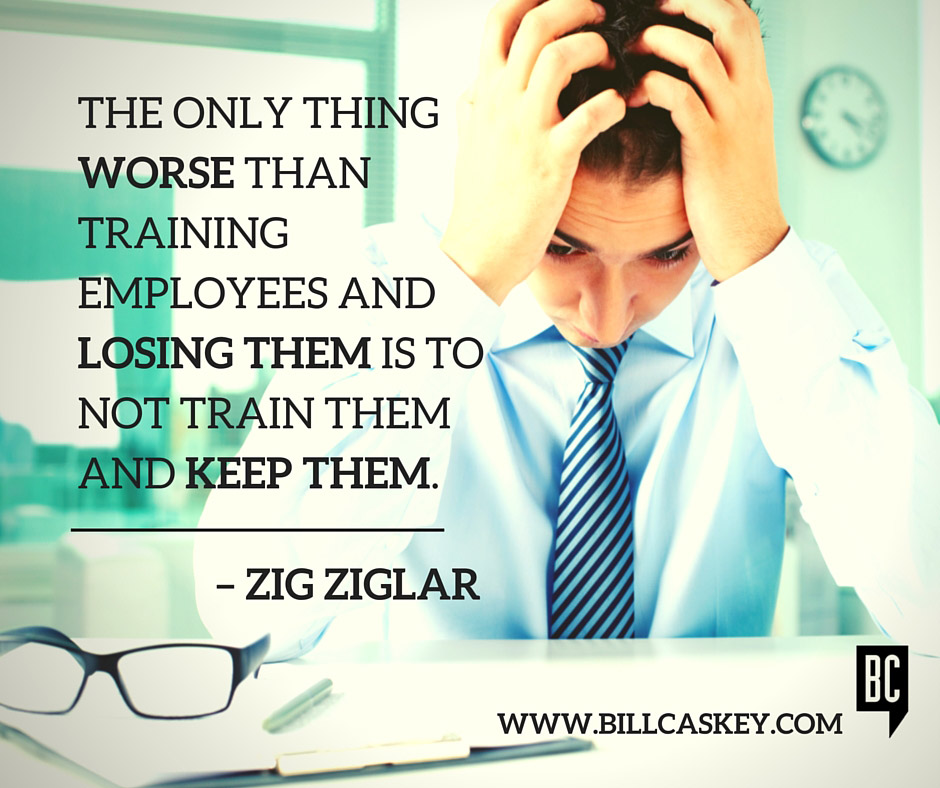How Do You Successfully Onboard New Sales People?
As you bring on new sales people, the key question is always some form of: “How do we get new sales people up to speed quickly?”

In my training and coaching practice, I’ve seen companies truly botch this up. Never intentionally, of course. But, here are a few thoughts on how to onboard new employees quicker and more successfully.
1. Complete a Thorough Job Responsibility Document.
Yes, a document. Lots of firms refuse to commit anything to paper. It must be crystal clear on what the roles and functions of the job are… and what is expected of that person.
2. What “Success” Here Looks Like.
A few months ago, I asked a client who was bringing on lots of new people, to document the Success DNA at their company. In other words, what rules should the new person play by in order to crush it quickly? They came up with things like: appropriate follow-up to leads; amount of time they should spend reading and studying success; how they should, optimally, interact with their superiors; how to handle the most common 12-15 objections; how to handle the most common circumstances they’ll find themselves in; and how to message the value appropriately. Let your mind run wild with the “rules of success” at your firm. This might also be a good sales meeting topic to build that list.
NOTE: This also becomes an excellent review document that you can bring out at your semi-annual reviews with people.
3. Proper Coaching Cadence.
I suggest a weekly cadence of meetings with the new person…one hour is fine. At this meeting, you will take the pulse on how they’re progressing, any problems they’ve run into, how they’re feeling mentally about their new role, and suggestions on things they can do/learn immediately. There is seldom enough of this. Yes, it takes time but it will pay enormous dividends.
4. An Accountability Mentor.
Take someone from your current sales team and make them a mentor for the first 90 days. The new person should be responsible for setting up a periodic meeting (monthly to begin with), that will help them get clear on message, objections, situations, and success. It will also help the mentor by reminding them of what they went through when they first started. Sometimes, a back-to-the-basics approach is just what’s needed. After 90 days, you can assess whether it’s helping. If not, change mentors.
I know I didn’t mention product knowledge training here. I suspect that most companies get this part right. But there is much more to onboarding success than simply product knowledge.
What about you? What have you seen work? Not work? What mistakes did companies make with you when you were new?
Would love to hear your comments below.




Bill
We use metrics in Salesforce to provide weekly, monthly, quarterly and annual feedback how our salespeople compare to the rest of the team. The metrics we measure our Opportunities Created, Monthly Pipeline by deal size and grading of probability to close.
I have found that the numbers ultimately don’t lie. Not enough opportunities created means not talking to enough prospects. Pipeline not closing means either they are padding the Funnel Health or are struggling differentiating from competition.
We are passing last years total sales next week. Business is good. Hope you are well.
Coffey
Thanks Chris…yes, SF is the best out there. A little cumbersome, but very effective. Onward and upward for you!! -BC